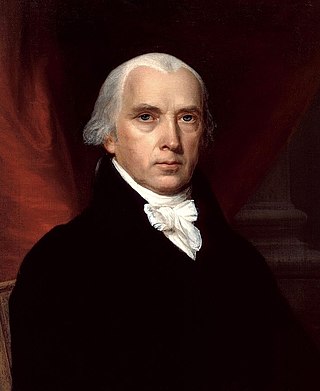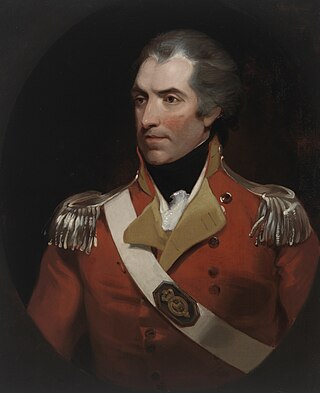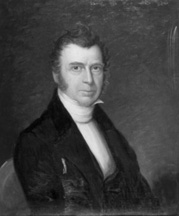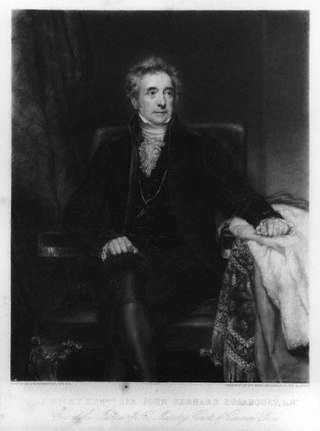Related Research Articles

The Bank of England is the central bank of the United Kingdom and the model on which most modern central banks have been based. Established in 1694 to act as the English Government's banker and debt manager, and still one of the bankers for the Government of the United Kingdom, it is the world's eighth-oldest bank.

The 1804 United States presidential election was the fifth quadrennial presidential election, held from Friday, November 2, to Wednesday, December 5, 1804. Incumbent Democratic-Republican president Thomas Jefferson defeated Federalist Charles Cotesworth Pinckney of South Carolina. It was the first presidential election conducted following the ratification of the Twelfth Amendment to the United States Constitution, which reformed procedures for electing presidents and vice presidents.

The 1808 United States presidential election was the sixth quadrennial presidential election, held from Friday, November 4, to Wednesday, December 7, 1808. The Democratic-Republican candidate James Madison defeated Federalist candidate Charles Cotesworth Pinckney decisively.

George Clinton was an American soldier, statesman, and a prominent Democratic-Republican in the formative years of the United States of America. Clinton served as the fourth vice president of the United States from 1805 until his death in 1812. He also served as the first governor of New York from 1777 to 1795 and again from 1801 to 1804. Along with John C. Calhoun, he is one of two vice presidents to hold office under two consecutive presidents. He was also the first vice-president to die in office.
The New South Wales Corps, later known as the 102d Regiment of Foot, and lastly as the 100th Regiment of Foot, was a formation of the British Army organised in 1789 in England to relieve the New South Wales Marine Corps, which had accompanied the First Fleet to New South Wales. In Australia, the New South Wales Corps gained notoriety for its trade in rum and mutinous behaviour.

William Bingham was an American statesman from Philadelphia. He was a delegate for Pennsylvania to the Continental Congress from 1786 to 1788 and served in the United States Senate from 1795 to 1801. Bingham was one of the wealthiest men in the United States during his lifetime, and was considered to be the richest person in the U.S. in 1780.
George Caley was an English botanist and explorer, active in Australia for the majority of his career.

Colonel William Paterson, FRS was a Scottish soldier, explorer, Lieutenant Governor and botanist best known for leading early settlement at Port Dalrymple in Tasmania. In 1795, Paterson gave an order that resulted in the massacre of a number of men, women and children, members of the Bediagal tribe.

The governor of the Bank of England is the most senior position in the Bank of England. It is nominally a civil service post, but the appointment tends to be from within the bank, with the incumbent grooming their successor. The governor of the Bank of England is also chairman of the Monetary Policy Committee, with a major role in guiding national economic and monetary policy, and is therefore one of the most important public officials in the United Kingdom.

Schroders plc is a British multinational asset management company headquartered in London, England. Founded in 1804, it employs over 6,000 people worldwide in 38 locations around Europe, America, Asia, Africa and the Middle East. It is traded on the London Stock Exchange and is a constituent of the FTSE 100 Index.

His Majesty's Armed Survey Vessel Lady Nelson was commissioned in 1799 to survey the coast of Australia. At the time large parts of the Australian coast were unmapped and Britain had claimed only part of the continent. The British Government were concerned that, in the event of settlers of another European power becoming established in Australia, any future conflict in Europe would lead to a widening of the conflict into the southern hemisphere to the detriment of the trade that Britain sought to develop. It was against this background that Lady Nelson was chosen to survey and establish sovereignty over strategic parts of the continent.

Reuel Williams was an American lawyer and politician who served one term as a U.S. Senator from Maine from 1837 to 1843.
The following lists events that happened during 1804 in Australia.
General Sir Charles Menzies, was a senior Royal Marines officer. Although he became a respected soldier, fighting with Horatio Nelson in the Napoleonic Wars and later rising to the rank of general before becoming aide de camp to Queen Victoria, Menzies is best remembered for the founding of Newcastle, New South Wales and the successful commencement of its settlement between the age of 21 and 22.

The 1807 New York gubernatorial election was held in April 1807 to elect the Governor. Incumbent Governor Morgan Lewis ran for a second consecutive term in office but was defeated by Daniel D. Tompkins, who had the support of the influential Clinton family.

Andrew John Bailey is a British central banker and Governor of the Bank of England since 16 March 2020.

Sir John Bernard Bosanquet KS PC was a British judge.
Edward Darell (1728–1814) was an English merchant and Governor of the Bank of England from 1787 to 1789.
Joseph Nutt was Governor of the Bank of England from 1802 to 1804. He had been Deputy Governor from 1801 to 1802. He replaced Job Mathew Raikes as Governor and was succeeded by Benjamin Winthrop. He was the eledest son of John Nutt and Margaret, née Carr, of Raisin Hall near Pitsmoor, Sheffield. He never married and died on 9 March 1805, aged 69, while travelling to London from Oxford.

United States gubernatorial elections were held in 1804, in 13 states, concurrent with the House, Senate elections and presidential election.
References
- ↑ Governors of the Bank of England. Archived 2012-02-12 at the Wayback Machine Bank of England, London, 2013. Archived here. Retrieved 9 March 2016.